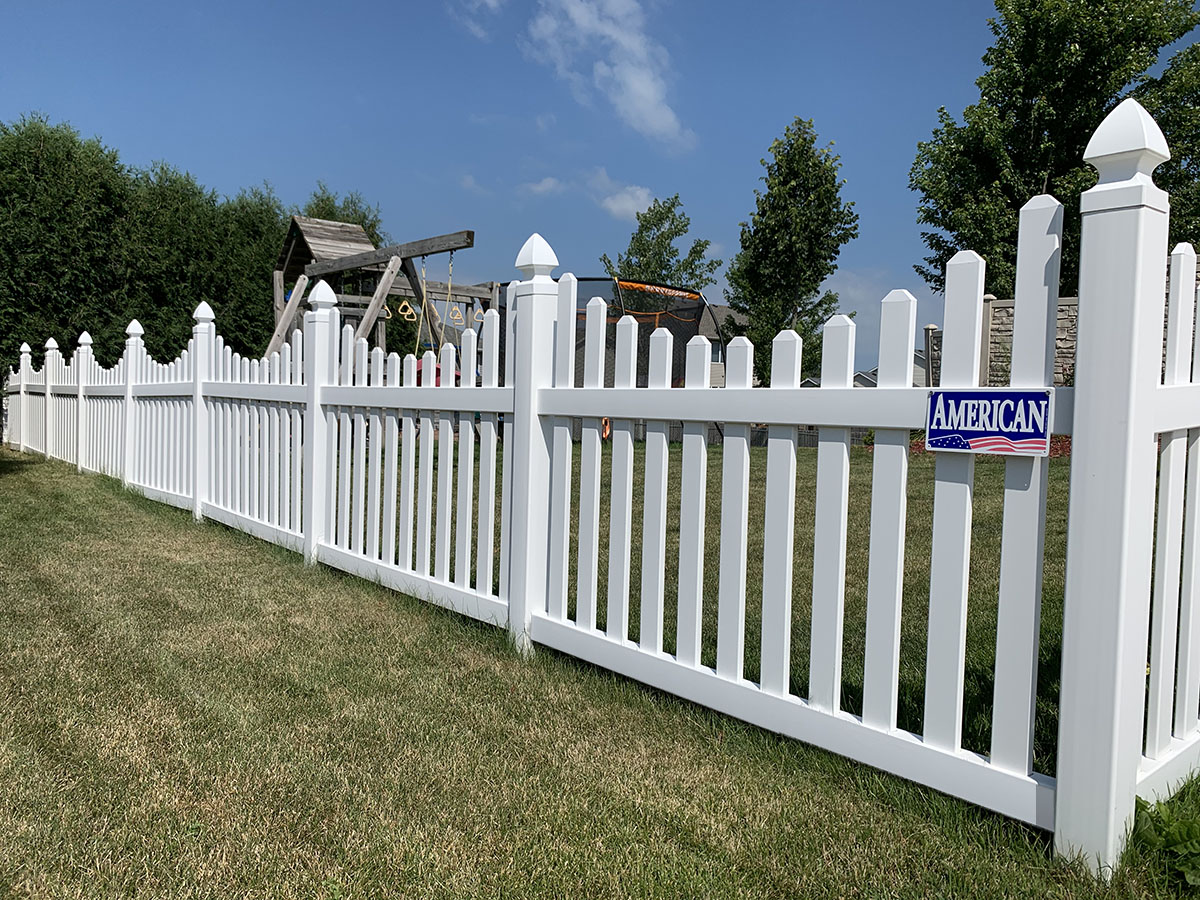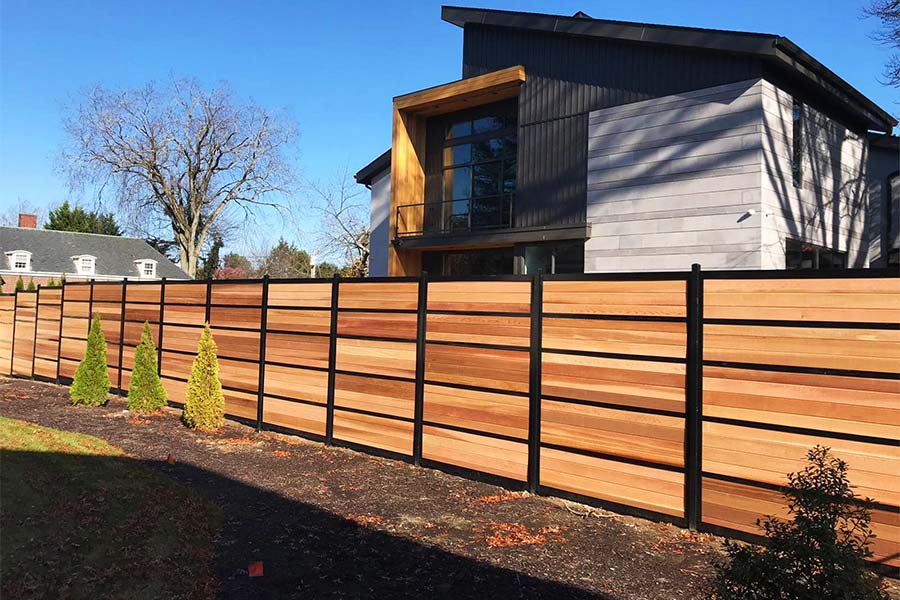All Categories
Featured
Understanding the license demands in your area is necessary if you're considering installing a fence around your building. While developing a fence might feel like a simple DIY task, numerous guidelines might regulate its building and construction depending on where you live. Failing to get the proper licenses can cause fines, fines, or perhaps having to remove the fencing completely. In this guide, we'll damage down the different licenses you might require to mount a fencing and just how to guarantee your task stays certified with neighborhood legislations.
Why Are Allows Essential for Fence Installment? Authorizations are needed to ensure that the fence you develop adheres to local building regulations, zoning guidelines, and safety and security standards. These licenses are in location to safeguard your home, the residential properties around you, and the atmosphere. They guarantee that the fencing won't obstruct energies, web traffic circulation, or develop dangers for pedestrians. Additionally, they aid keep the structural and visual honesty of your community.
![]()
Types of Permits You Might Demand. Structure Permit. A building permit is the most typical requirement for installing a fence. This permit makes certain that the framework you construct adhere to local security codes and laws. If your fence exceeds a specific height (normally around 6 feet), you may require to get a building license. The neighborhood authorities will normally review your strategies to make sure that your fencing is structurally audio and risk-free.
Zoning Permit. Zoning laws control land usage in your location, and they usually regulate where fencings can be installed, as well as how high they can be. A zoning permit guarantees that your fencing adheres to these guidelines. Your fencing might need to be established back a specific range from pathways or building lines. Zoning regulations can vary by neighborhood, so it's crucial to examine the certain guidelines that relate to your place.
Homeowners Organization (HOA) Approval. You might need approval prior to installing a fencing if your property is part of a property owners organization. HOAs typically have rigorous policies concerning the type, style, and materials made use of for fences to maintain a consistent look throughout the community. The HOA might require you to send thorough strategies or request approval prior to installment. Make certain you follow these guidelines to avoid prospective fines or charges.
Specialized Permits. In many cases, you may need specialty permits based on the location of your home or the nature of your fence. If your residential property is in a flood area, you might require extra licenses to make sure that your fencing does not obstruct water drainage or water flow. Similarly, if you prepare to construct a fence near an eco secured area, you may require a special authorization to follow ecological regulations.
![]()
Energy Easements and Utility Company Approvals. Some residential or commercial properties have energy easements, which are locations designated for energy pipelines, lines, or cable televisions. Prior to setting up a fence, you need to examine if your residential property has an easement. Constructing a fencing within an easement can interfere with utility maintenance or damages underground lines. You might need authorization from the energy business or regional authorities prior to waging the setup.
Exactly How to Determine Which Allows You Required. Inspect with Regional Authorities. The first step in identifying the authorizations called for is to contact your regional structure department or zoning workplace. They can give particular information about what licenses are required for your area. Lots of cities have online resources or sites where you can inspect the requirements or perhaps request a license online.
Consult a Professional Fence Contractor. A neighborhood fencing service provider is frequently acquainted with the permit process and local laws. They can aid you browse the requirements and ensure that your task is compliant. Lots of specialists also manage the permit application procedure on your behalf, conserving you time and initiative.
Testimonial Your Community's HOA Guidelines. If you reside in an area regulated by an HOA, ensure to assess their standards prior to making an application for any kind of authorizations. The HOA may require particular layouts, materials, or elevation constraints for fences within the area. Submit your plans to them for approval before continuing.
![]()
Repercussions of Not Acquiring a License. Setting up a fencing without the required authorizations can lead to significant repercussions. Potential buyers might be reluctant to acquire a home with an unpermitted fencing, specifically if it's in violation of zoning legislations.
Final thought. Before installing a fencing on your home, make certain you understand the neighborhood regulations and obtain any necessary licenses. Building licenses, zoning licenses, HOA authorizations, and specialty allows all play a critical function in ensuring that your fence is safe, lawful, and compliant.
Why Are Allows Essential for Fence Installment? Authorizations are needed to ensure that the fence you develop adheres to local building regulations, zoning guidelines, and safety and security standards. These licenses are in location to safeguard your home, the residential properties around you, and the atmosphere. They guarantee that the fencing won't obstruct energies, web traffic circulation, or develop dangers for pedestrians. Additionally, they aid keep the structural and visual honesty of your community.

Types of Permits You Might Demand. Structure Permit. A building permit is the most typical requirement for installing a fence. This permit makes certain that the framework you construct adhere to local security codes and laws. If your fence exceeds a specific height (normally around 6 feet), you may require to get a building license. The neighborhood authorities will normally review your strategies to make sure that your fencing is structurally audio and risk-free.
Zoning Permit. Zoning laws control land usage in your location, and they usually regulate where fencings can be installed, as well as how high they can be. A zoning permit guarantees that your fencing adheres to these guidelines. Your fencing might need to be established back a specific range from pathways or building lines. Zoning regulations can vary by neighborhood, so it's crucial to examine the certain guidelines that relate to your place.
Homeowners Organization (HOA) Approval. You might need approval prior to installing a fencing if your property is part of a property owners organization. HOAs typically have rigorous policies concerning the type, style, and materials made use of for fences to maintain a consistent look throughout the community. The HOA might require you to send thorough strategies or request approval prior to installment. Make certain you follow these guidelines to avoid prospective fines or charges.
Specialized Permits. In many cases, you may need specialty permits based on the location of your home or the nature of your fence. If your residential property is in a flood area, you might require extra licenses to make sure that your fencing does not obstruct water drainage or water flow. Similarly, if you prepare to construct a fence near an eco secured area, you may require a special authorization to follow ecological regulations.

Energy Easements and Utility Company Approvals. Some residential or commercial properties have energy easements, which are locations designated for energy pipelines, lines, or cable televisions. Prior to setting up a fence, you need to examine if your residential property has an easement. Constructing a fencing within an easement can interfere with utility maintenance or damages underground lines. You might need authorization from the energy business or regional authorities prior to waging the setup.
Exactly How to Determine Which Allows You Required. Inspect with Regional Authorities. The first step in identifying the authorizations called for is to contact your regional structure department or zoning workplace. They can give particular information about what licenses are required for your area. Lots of cities have online resources or sites where you can inspect the requirements or perhaps request a license online.
Consult a Professional Fence Contractor. A neighborhood fencing service provider is frequently acquainted with the permit process and local laws. They can aid you browse the requirements and ensure that your task is compliant. Lots of specialists also manage the permit application procedure on your behalf, conserving you time and initiative.
Testimonial Your Community's HOA Guidelines. If you reside in an area regulated by an HOA, ensure to assess their standards prior to making an application for any kind of authorizations. The HOA may require particular layouts, materials, or elevation constraints for fences within the area. Submit your plans to them for approval before continuing.

Repercussions of Not Acquiring a License. Setting up a fencing without the required authorizations can lead to significant repercussions. Potential buyers might be reluctant to acquire a home with an unpermitted fencing, specifically if it's in violation of zoning legislations.
Final thought. Before installing a fencing on your home, make certain you understand the neighborhood regulations and obtain any necessary licenses. Building licenses, zoning licenses, HOA authorizations, and specialty allows all play a critical function in ensuring that your fence is safe, lawful, and compliant.
Latest Posts
Don’t Miss Exclusive Auto Repair Offers in Chicago at Montclare Auto Repair
Published en
1 min read
Check Out the Best Auto Repair Offers in Montclare, Chicago
Published en
1 min read
Learn About Premier Auto Repair Care at Montclare Auto Repair – Expert Care for Your Vehicle
Published en
1 min read
More
Latest Posts
Don’t Miss Exclusive Auto Repair Offers in Chicago at Montclare Auto Repair
Published May 25, 25
1 min read
Check Out the Best Auto Repair Offers in Montclare, Chicago
Published May 24, 25
1 min read
Learn About Premier Auto Repair Care at Montclare Auto Repair – Expert Care for Your Vehicle
Published May 24, 25
1 min read